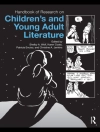This interdisciplinary collection of essays focuses on critical and theoretical responses to the apocalypse of the late twentieth- and early twenty-first-century cultural production. Examining the ways in which apocalyptic discourses have had an impact on how we read the world’s globalised space, the traumatic burden of history, and the mutual relationship between language and eschatological belief, fifteen original essays by a group of internationally established and emerging critics reflect on the apocalypse, its past tradition, pervasive present and future legacy.
The collection seeks to offer a new reading of the apocalypse, understood as a complex – and, frequently, paradoxical – paradigm of (contemporary) Western culture. The majority of published collections on the subject have been published prior to the year 2000 and, in their majority of cases, locate the apocalypse in the future and envision it as something imminent. This collection offers a post-millennial perspective that perceives ‘the end’ as immanent and, simultaneously, rooted in the past tradition.












